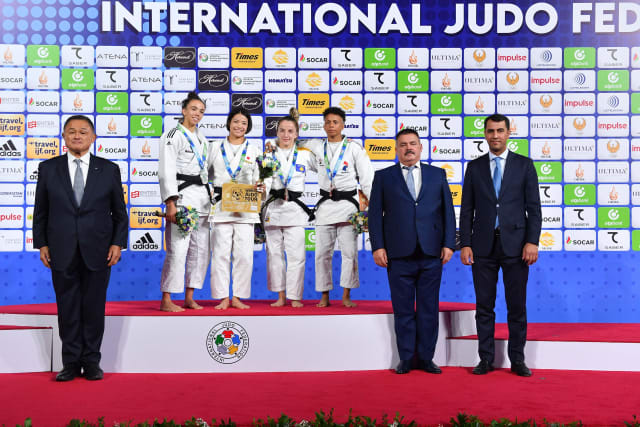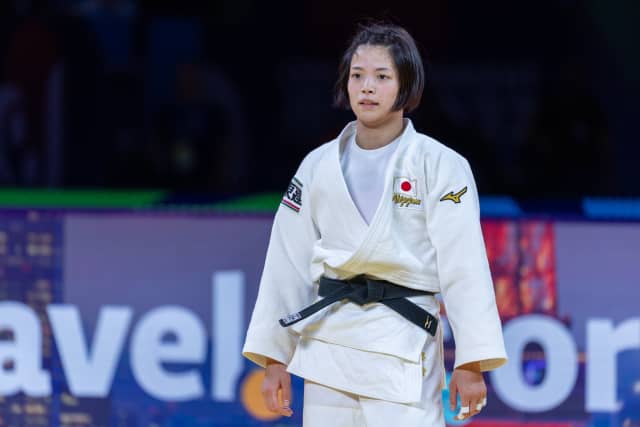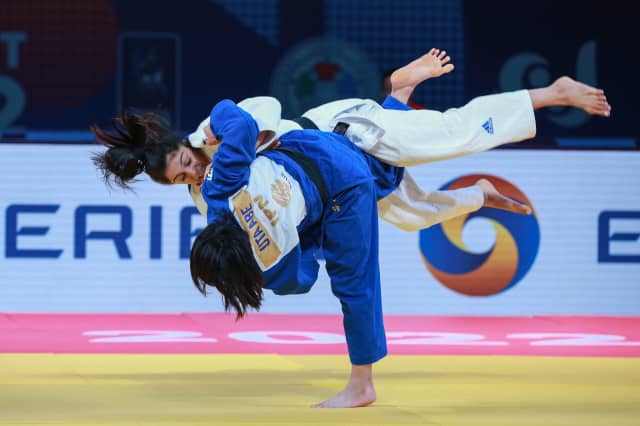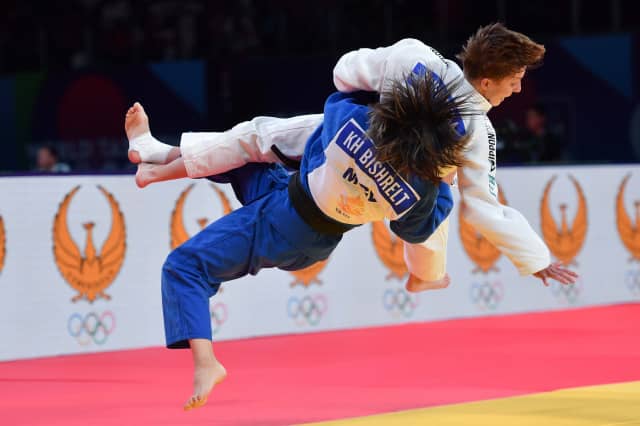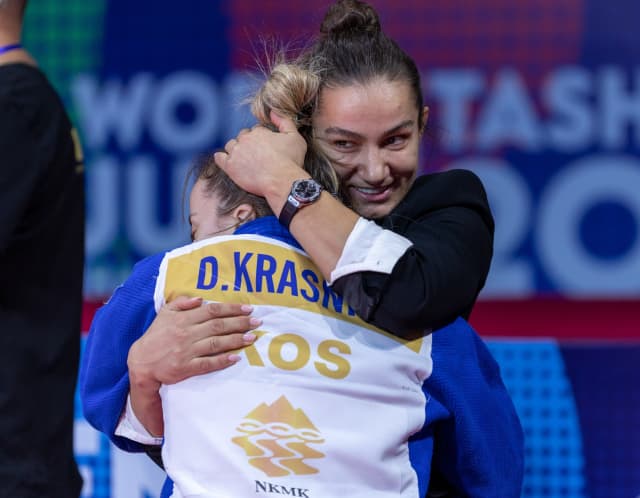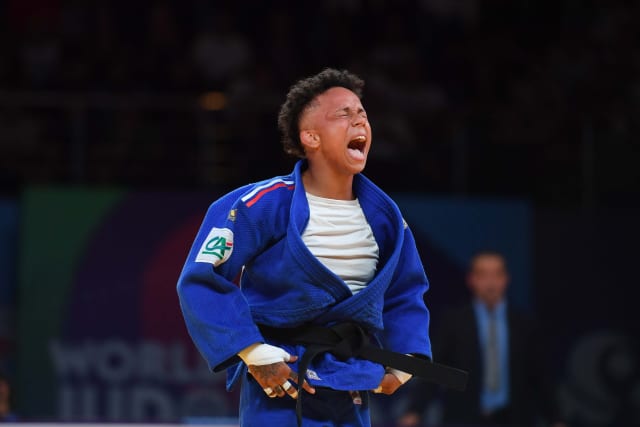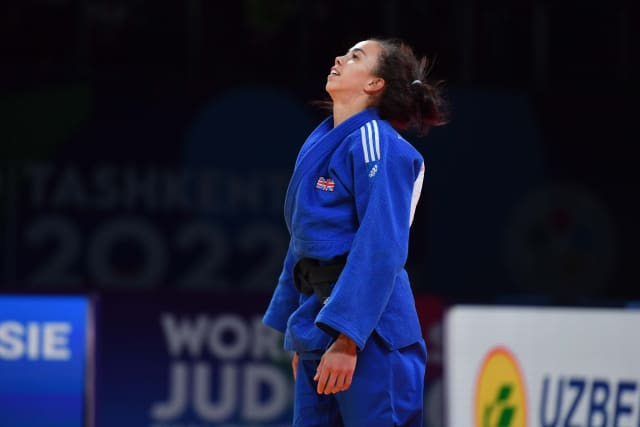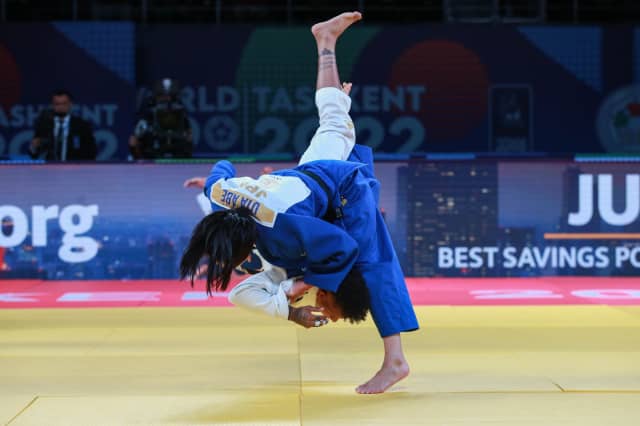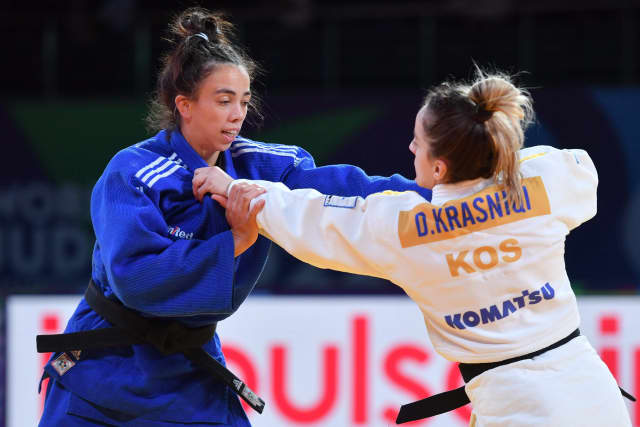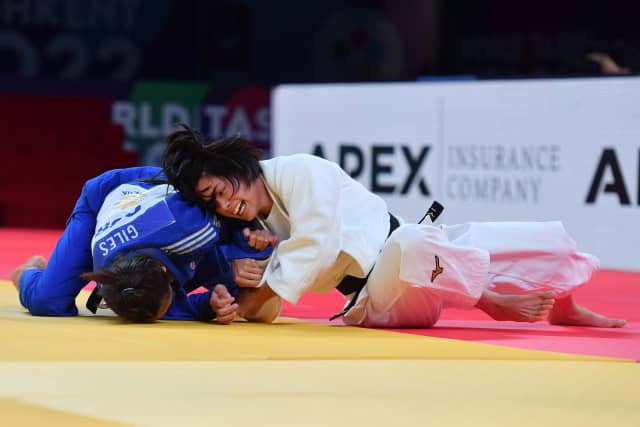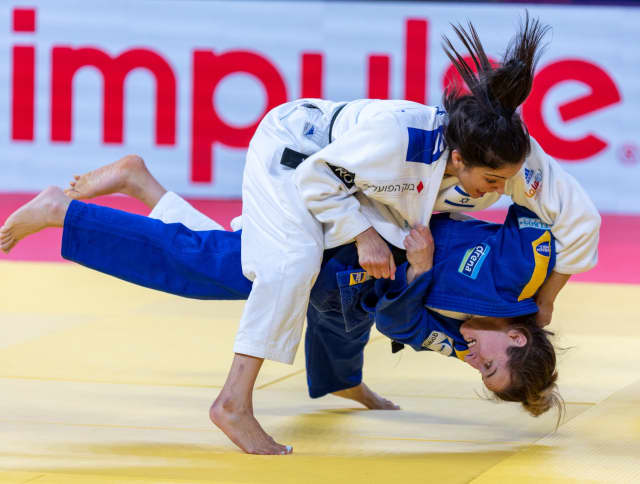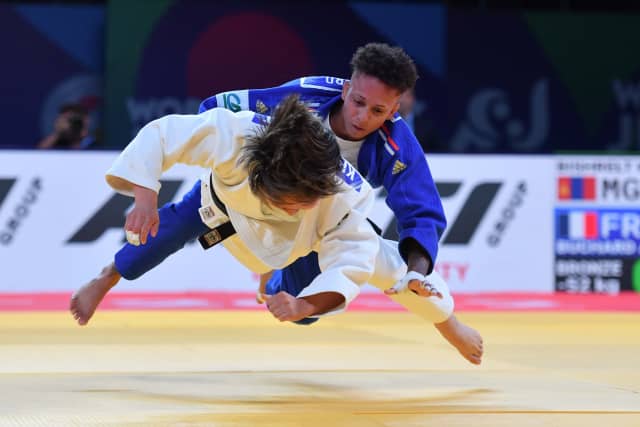Uta Abe was the heavy favourite in the women's category that probably has the highest density of talent. The Japanese, Olympic and two-time world champion, solved her first match with ippon against the Serbian Nadezda Petrovic; so far, nothing new. The novelty was the time that Abe used to win because she just missed out on needing golden score. It may seem like a trifle but those who know the Japanese know that it is not. She is one of those who solves problems quickly. In fact, her first contact was just that, because from then on she accelerated the cadence and pulverised the Korean Kerin Jung and the Israeli Gefen Primo. With Primo we thought that Abe would suffer a bit but the Japanese cleared up any hint of doubt by doing the same as she did with the others.
On the opposite side we placed Reka Pupp. The Hungarian arrived in Tashkent with the status of number two in the world ranking, a positive dynamic and a lot of ambition. In the first round she faced the Mongolian Khorloodoi Bishrelt, a strong woman, a good test to begin with. The fight lasted twelve minutes and Pupp was not having a good day, that was seen right away; she ended up losing.
That group C was deadly, with the Italian Odette Giuffrida, the Kosovar and Olympic champion in -48kg, Distria Krasniqi, and the Portuguese Joana Diogo. The two strongest were Krasniqi and Giuffrida, who met for a place in the quarter-finals. Krasniqi lost some feathers in the previous match against Bishrelt, which she won by waza-ari but at the time limit and with two shido against. She had more luck with Giuffrida, who was disqualified, hansoku-make.
Apart from this group and Abe, there were two contenders to consider, especially Amandine Buchard, number one in the world ranking. The Frenchwoman had a peaceful morning with two easy victories against the Swiss Binta Ndiaye and the Spanish Estrella López Sheriff and then a more complicated fight against the Brazilian Larissa Pimenta. Buchard had to work hard and she did not have a good time, against Pimenta, who ended up losing in golden score. In the semi-finals, her Nemesis awaited, Abe Uta in person, whom Buchard was unable to dominate. To defeat the best, Buchard had to bring out her best judo and hope that the Japanese would make a mistake, which usually doesn't happen, or suffer a physical downturn, which also doesn't usually happen, or maybe a decline in the quality of her judo and that really, really never happens.
The other is Chelsie Giles. The British took advantage of a more docile group, less complicated, to carve out a future in the tournament. She did it well, with clear victories, without hesitation, against the Chinese Liping Liu, the American Katelyn Jarrell and the Polish Aleksandra Kaleta. Giles is explosive and she has good ne-waza. Picking the right rhythm was necessary to measure forces with Krasniqi in the semi-finals. It can be said that Krasniqi and Giles were on equal terms because the Kosovar is more powerful but Giles arrived fresher.
Abe did not welcome Buchard with open arms. Twelve seconds and waza-ari, it takes longer to make a coffee. Buchard was not at the same level, she had to raise the bar much higher, to heights that she still does not know. That's what it takes to beat Abe and no-one has flown that high yet. However, Buchard decided to shut our mouths and show that she has come a long way, that she does fly as she expects. It was a waza-ari for the Frenchwoman who balanced the match. Golden score began and there was everything to do, but this was also a message for Abe, one that meant things were not going to be easy at all. Abe still had the initiative and Buchard was waiting for the moment to fight back. Then the Japanese showed her enormous class because she was penalised with a second shido and then it only took her three seconds to execute an uchi-mata and qualify for the final.
Do you remember the equal terms mentioned between Krasniqi and Giles? Well, we were also wrong, or rather it was the British that deceived us. Giles clearly dominated the Kosovar and ended the fight with a pin worthy of teaching to the younger ones. There we were not mistaken, we already warned about her excellent ne-waza.
Things went like this: the Olympic champion to the final facing the bronze medallist and the Olympic runner-up, Buchard, as well as the Olympic champion in -48kg, Krasniqi, to fight for bronze. All this is to say that, with the exception of Pupp, the hierarchy was respected.
Abe thus reached the final by winning all her matches by ippon or waza-ari, while Giles won three of the four matches on the ground by pinning. Giles is taller than Abe but Abe knows how to do it all and she does it beautifully, like when Giles got a good grip to launch an attack that Abe blocked and converted into waza-ari. It is normal for the opponents of the Japanese to end up mad because Abe does not show weaknesses and does not make mistakes. It is what it is, she is the best and nobody thinks otherwise because that would be crazy. If you don't believe us, check the statistics. At the age of 22, Abe Uta has three world titles in the women's category, one in the junior category and one Olympic title. We repeat, 22 years old and she doesn't look like she wants to retire.
There was a choice between Krasniqi's physical might and Primo's determination; a difficult choice. Before doing anything else, they neutralised each other. Krasniqi then decided to change tactics and launched a couple of attacks that cost the Israeli two shido for passivity. That's when Primo launched an attack that didn't work and made a third mistake that was a third shido. Krasniqi came for the gold and walked away with the bronze but the big hug she gave her coach Majlinda Kelmendi made us understand that getting on the podium was also considered a success.
As for the second bronze, Buchard logically won against Bishrelt thanks to a great waza-ari with a minute to go. She also preferred gold but it is important to fight for bronze because it is a medal and because it is always better to return home with the taste of victory.
Final (-52 kg)
Bronze Medal Fights (-52 kg)
Final Results (-52 kg)
